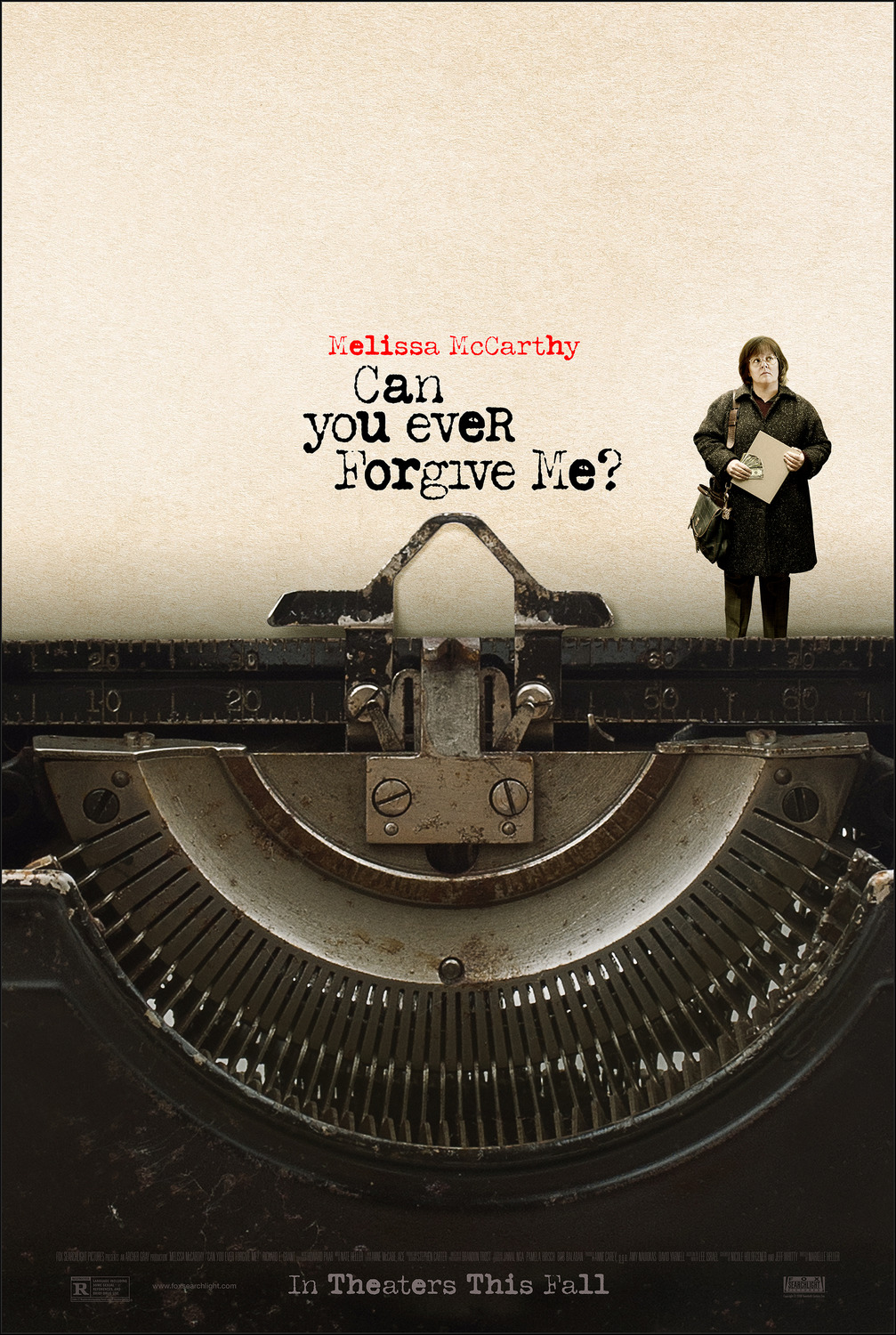Midway through Can You Ever Forgive Me? Lee Israel (Melissa McCarthy) shows us how dedicated she is to her flourishing criminal enterprise. The has-been author has been raking in beaucoup bucks forging and then selling personal letters from the literary elite—including Dorothy Parker, Noel Coward, and Lillian Hellman—and we watch as she lightly bakes the papers in her oven to achieve the antiquey appearance needed for them to seem legit. It’s hard to quell a chuckle at that moment, even as you remember the (relatively) serious fraud she’s perpetrating.
That dichotomy is symptomatic of the film’s overall depth, which is part of what ensures everything winds up working so brilliantly. Every single bio of the late Israel mentions her personality and reputation (which, depending on the witness, is described as anything from difficult to downright toxic), and any film that can evoke at least a smidge of compassion for such a horrible, irascible criminal deserves high marks.
It would have been very easy for screenwriters Nicole Holofcener and Jeff Whitty to portray Israel as a one-note wonder, and director Marielle Heller could have simply let the story play itself out, but all involved saw something deep in the layers of Israel’s life, and we get to sit back and reap the rewards.
The movie begins in 1991 as the frumpy, hermitic Israel, a literal cat lady, is struggling after her career as an author has dried up. When she trips on a (genuine) old letter from Fanny Brice, Israel gets it appraised in the hopes of getting some quick cash. She’s told, though, that the letter’s value is minimal, due to the pedestrian subject matter. Undeterred, however, Israel decides to tart up the letter herself, and her criminal career is born.
McCarthy, who has had no shortage of duds lately, seems like an odd casting choice on paper (Julianne Moore initially landed the role and then promptly bailed over creative differences), but she turns in what is literally the performance of her life (so far) here. Akin to Bill Murray’s work in Lost in Translation or Jim Carrey’s performance in Man on the Moon, McCarthy proves she has more than enough to make the transition away from the world of groaner material like The Boss and Life of the Party. It’s hard to imagine anyone making the acerbic Israel a sympathetic figure as effortlessly as McCarthy makes it seem.
Equal parts hilarious and squirm-inducing, the film is an unqualified success overall, and its emotional heft is enhanced by the stellar supporting cast, particularly Richard E. Grant as Israel’s eccentric friend and eventual co-conspirator.
The literary world may never forgive Israel for her transgressions, but watching Can You Ever Forgive Me? offers at least a little perspective (if not downright admiration) for them. Her 2014 obituary in the New York Times was titled, “Lee Israel, a Writer Proudest of her Literary Forgeries, Dies at 75”. It was an eyebrow-raising headline to be sure, and now we finally get to see for ourselves the fantastic story behind it.
Rating
4.5/5 stars
